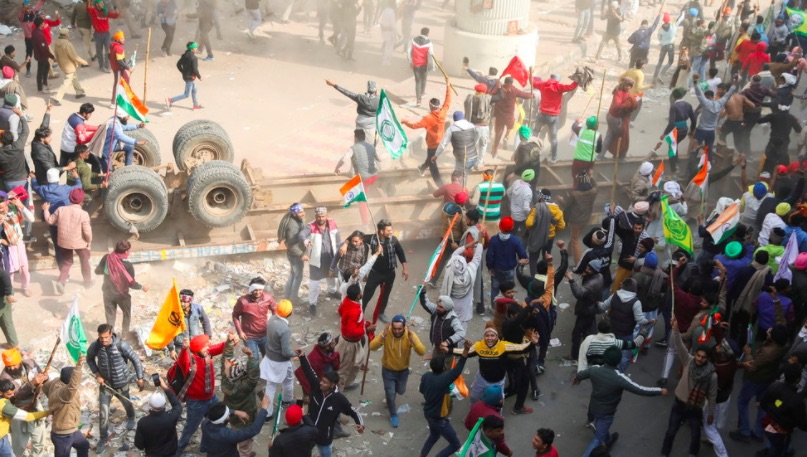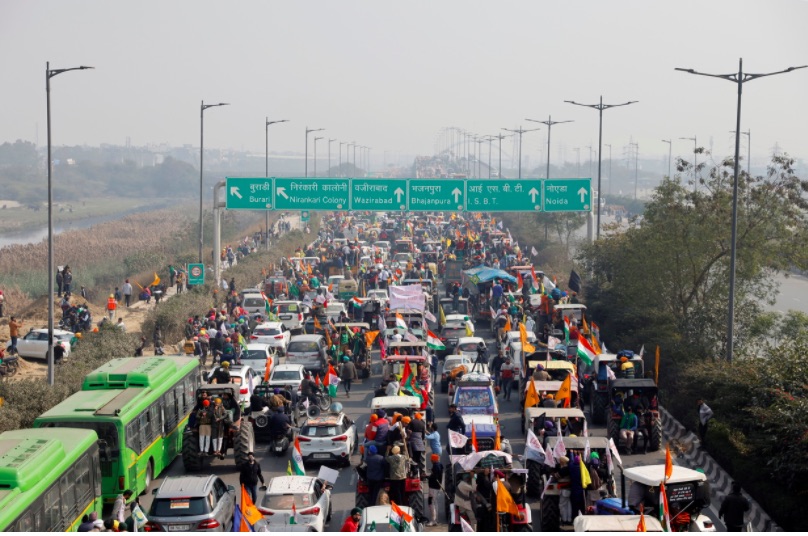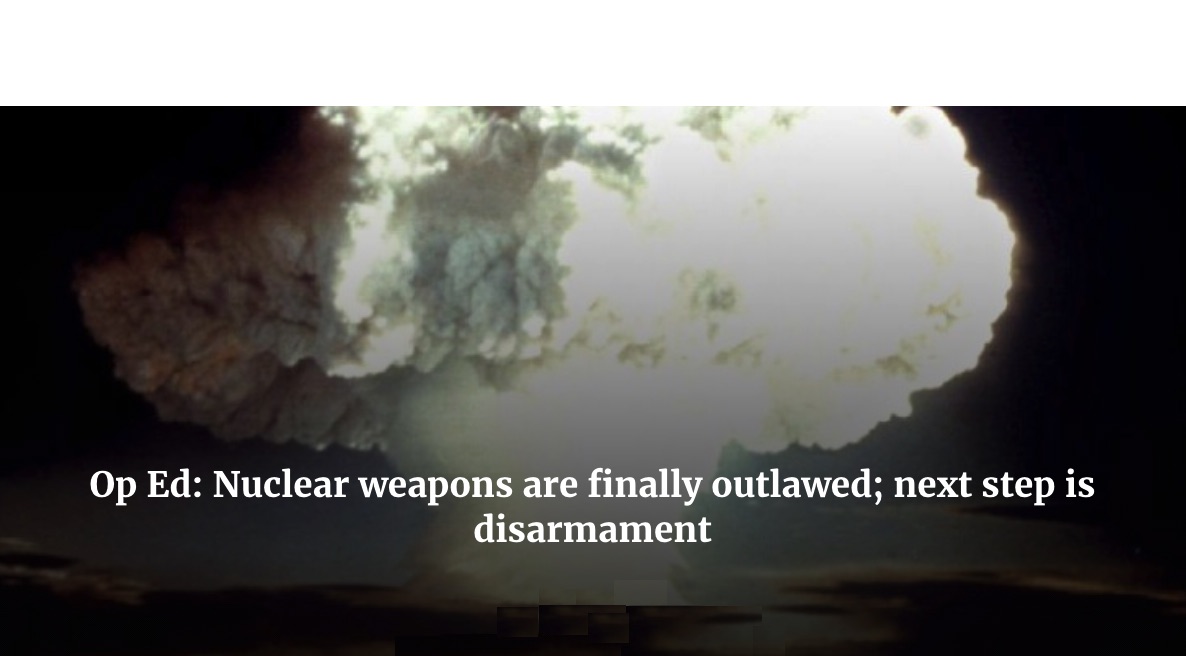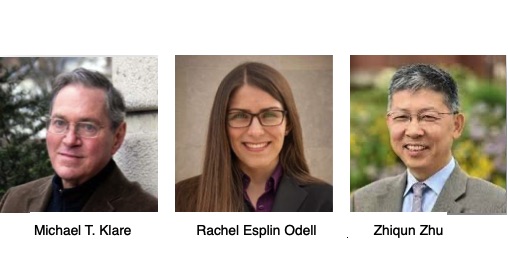FREE FLOW OF INFORMATION
Here are events and application deadlines in January that were previously listed on the CPNN page for upcoming virtual events. Unless otherwise noted the events are in English.
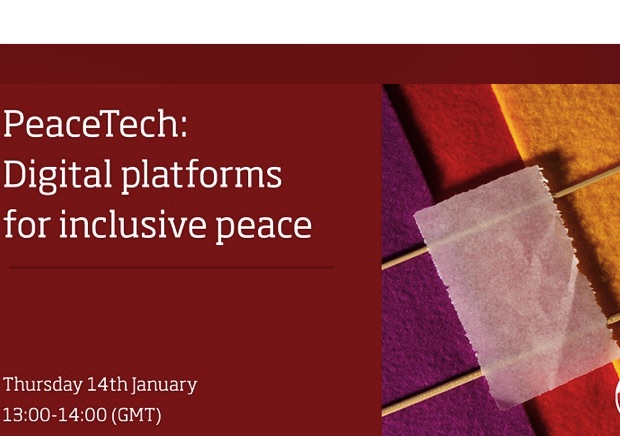
Tuesday January 12 8 p.m. (EST-USA)
Introduction to the History & Dynamics of U.S. Asia-Pacific Policies
— The United States has been an imperial power across Asia and the Pacific since Admiral Perry’s Black Ships “opened” Japan, and the U.S. conquered the Philippines, Guam and Samoa and annexed Hawaii during the “Spanish-American War.” President-elect Joe Biden and Antony Blinken are repeating their commitments to reinforce U.S. Asia-Pacific alliances and to the military buildup to contain China that was begun with the Obama “pivot” to Asia and the Pacific and deepened by Trump’s ratcheting up tensions with China.
— Speakers include Corozon Fabros of Asia-Europe Peoples Forum, the ASEAN Civil Society Conference- ASEAN Peoples Forum., Tobita Chow of Justice is Global and Mark Seldon editor of The Asia-Pacific Journal
— Register here in advance for this webinar
January 13, 2021 at 7:30pm – 7:30pm MST
The Nuclear Weapons Stand-off: State of Play
Organised by: Ploughshares Calgary
— Our speaker, Earl Turcotte, will provide a clear, interesting and informed update on the new Treaty that prohibits nuclear weapons. Earl is the current Chairperson of the Canadian Network to Abolish Nuclear Weapons, served over 40 years as an aid worker, Canadian diplomat and UN official. For 15 years prior to his retirement in 2015, he focused on arms control and disarmament, including being lead negotiator for Canada of the Convention on Cluster Munitions. Since retiring in 2015 he has focused his efforts on nuclear disarmament.
— Virtual event | link: https://us02web.zoom.us/j/85810285613
Meeting ID: 858 1028 5613
Passcode: 166927
Thursday, 14 January 2021, 14:00 – 15:00 CET
PeaceTech: Digital Platforms for Inclusive Peace
This webinar will explore how digital platforms can support peacebuilding, with a special focus on the new PeaceFem mobile app which illustrates women’s inclusion in peace processes around the world.
— Featuring Dr Sanja Badanjak, Dr Devanjan Bhattacharya, and Fiona Knäussel from the PeaceTech team of PSRP (Political Settlements Research Programme), with special guest Dr Benjamin Bach, Lecturer in Design Informatics and Visualization at the University of Edinburgh, as event chair.
— This event is free and will be held on Zoom. Joining instructions will be sent to registered participants.
Tuesday, January 19, 2021, 15:00 CET
On January 19, the Basel Peace Office, Basel-Stadt Kanton, UNFOLD ZERO and Youth Fusion will hold Intergenerational dialogue on peace, the climate, nuclear disarmament and the pandemic, a forum of youth, experts and policy makers discussing actions and effective policies for peace, disarmament, the climate and public health especially in times of pandemic.
— Speakers include Marzhan Nurzahn (Kazakhstan/Switzerland), Convenor of Youth Fusion, the Abolition 2000 Youth Network for a Nuclear-Weapon-Free World; Davina Maloum (Cameroon), Founder of Children for Peace. International Children’s Peace Prize Co-winner 2019 (with Greta Thunberg), Prof. Dr Ernst Ulrich von Weizsäcker (Germany), Past Chairman of the German Bundestag Environment Committee, Honorary President of the Club of Rome: Maria Espinosa (Ecuador), Former Minister of Foreign Affairs, President of the UN General Assembly (2018-2019), Chair of the World Future Council Commission on the Rights of Children and Youth, and more…
— The event will also include the finalists and award ceremony for the Basel PACEY Plus youth award.
— Click here to register.
21 January, 2021 @ 2:00 – 3:10 pm GMT
Entry into force of the Treaty on the Prohibition of Nuclear Weapons and the Role of Health Professionals
— Share your contact information below to receive updates on the Global Health Webinar, co-sponsored by the International Council of Nurses, International Committee of the Red Cross, International Federation of Medical Students’ Association, International Physicians for the Prevention of Nuclear War, World Federation of Public Health Association, and World Medical Association.
Confirmed speakers:
-Moderator; Tilman Ruff, co-President, International Physicians for the Prevention of Nuclear War (IPPNW)
-Mahmood Al-Hamody, Liaison Officer for Human Rights and Peace Issues, -International Federation of Medical Students’ Associations
-David Barbe, President, World Medical Association
-Bettina Borisch, Executive Director, World Federation of Public Health Associations
-Erica Burton, Senior Advisor on Nursing and Health Policy, International Council of Nurses
-Véronique Christory, Senior Arms Control Advisor, The International Committee of the Red Cross
-Carlos Umaña, Regional Vice-President, IPPNW
— Register here
Friday – Jan 22, 2021, 1:00-3:00 pm CET
Celebration of the entry into force of the Treaty on the Prohibition of Nuclear Weapons
— On January 22nd, the world will celebrate the entry into force of the Treaty on the Prohibition of Nuclear Weapons (TPNW), supported by over 120 states at the UN in July 2017.
— On this historic day, we call on members of the IPB family, our friends and all peace lovers to celebrate this historical step, and deliver this great news with noise and fun in your countries all across the globe, as the road to a world free of nuclear weapons is now wide open!
— We invite you to join us for a virtual IPB Zoom party where we will celebrate this milestone toward nuclear disarmament together!
— Register to join the event here: https://bit.ly/ipbprt
Saturday, January 23 09:30 AM (EST)
Reducing the Threat of Nuclear War: Invest in Minds not Missiles” A National Conference
— CPDCS has been privileged to work with Jonathan King of MIT and many others in organizing this important national disarmament conference together.
— Though the Coronavirus has devastated the economy, it has not had any braking effect on the Presidential and Congressional push for spending more of our tax dollars on military and nuclear weapons development programs. Thus, we will have to find ways to continue to collaborate and cooperate in the development of a social movement strong enough to reverse the new nuclear arms race. This Conference is focused on that task.
— Speakers include Alan Robock, Sen. Ed Markey, Rep. Ayana Pressley, Rev. Liz Theoharis, Elaine Scarry, Subrata Goshroy, Lindsay Koshgarian, and many others.
— Breakout sessions – including the Asia-Pacific session led by CPDCS – A. Ban Treaty & Arms Control Treaties: B. The Costs of 21st Century Wars and the Politics of Defense Spending: C. Back from the Brink Campaign: D. No Resumption of Testing: E. No First Use Campaign: F. Demilitarizing Police: G. Climate and War/Green New Deal: H. Divesting from Weapons Manufacture: I. Bringing Peace into Electoral Contests: J. No New Cold War: The U.S., China, and the Asia Pacific: K. Moral Budget for Massachusetts: L. Vaccines Not Submarines: M. Campus Organizing
— Register here for free
23 de enero – 31 de enero
Foro Social Mundial: COMUNICACIÓN, EDUCACIÓN Y CULTURA
— Hola, Te has inscrito al FSM Virtual 2021 y has expresado tu interés en el espacio temático COMUNICACIÓN, EDUCACIÓN Y CULTURA.
— En este enlace puedes seguir las actividades que se están registrando en relación con este Espacio Temático.
— El correo electrónico educacioncomunicacioncultura@wsf2021.net está disponible para preguntas sobre este Espacio Temático.
— Para registrar organizaciones, actividades o iniciativas para Agora, inicie sesión en join .wsf2021.net y acceda al formulario correspondiente.
— En caso de necesitar más información sobre su actividad, una persona del Grupo Facilitador se pondrá en contacto contigo.
January 23 – January 31
World Social Forum 2021: COMMUNICATION, EDUCATION AND CULTURE
— Hi, You’ve signed up to the WSF Virtual 2021 and indicated interest in the COMMUNICATION, EDUCATION AND CULTURE.
— In this link you can follow the activities being registered in connection with this Thematic Space.
— The email educacioncomunicacioncultura@wsf2021.net is available for questions about this Theme Space.
— To register organizations, activities or Initiatives for Agora, log in to join .wsf2021.net and access the appropriate form.
— In case you need more information about your activity, a person from the Facilitator Group will contact you.
23 janvier – 31 janvier
Fórum Social Mundial: COMMUNICATION, ÉDUCATION ET CULTURE
— Bonjour, Vous vous êtes inscrit(e) au FSM 2021 virtuel et avez manifesté votre intérêt pour l’espace thématique COMMUNICATION, ÉDUCATION ET CULTURE.
— Sur ce lien, vous pouvez suivre les activités en cours d’enregistrement en lien avec cet espace thématique.
— L’e-mail educacioncomunicacioncultura@wsf2021.net est disponible pour toutes questions concernant cet espace thématique.
— Pour enregistrer des organisations, des activités ou des initiatives en vue de l’Agora, connectez-vous à join .wsf2021.net et accédez au formulaire approprié.
— Au cas où vous auriez besoin de plus d’informations sur votre activité, une personne du groupe de facilitateurs vous contactera.
Sunday, January 24, 2021 • 13:30 EST, 18:30 GMT
Webinar: Divest-Reinvest: Towards a Local Peace Economy
Grassroots-led divestment campaigns are springing up all over the world. There’s a reason why divestment is trending, and that’s because it’s a winning organizing tactic. Divestment gives direct agency to individuals and communities to cut ties to destructive industries. Change can be affected on a grassroots level, by individuals (switching banks and divesting retirement funds), by institutions (divesting universities, workplaces, & religious organizations, among others) and by communities (divesting municipal & state public pension funds).
— In this panel, three leading organizers will present case studies of successful & diverse divestment models, including fossil fuel and weapons divestment. Beyond divestment, we will explore how divestment must be paired with reinvestment strategies that advance a just transition from a war economy to a local peace economy.
— Moderator: Greta Zarro, Organizing Director, World BEYOND War; West Edmeston, NY, USA
Panelists: David Swanson (Co-Founder & Executive Director, World BEYOND War;
Susi Snyder (Coordinator for Don’t Bank on the Bomb;
Kelly Curry (CODEPINK Local Peace Economy Organizer;
— Join Zoom Meeting via this link
— Here is a recording of the webiner.
Sunday, January 24, 1-3 PM, EST
World Social Forum Peace Day. CPDCS/IPB workshop “For Peace, Justice & Democracy: U.S. Movement Perspectives”.
— President Biden assumes office in the midst of a host of national crises that impact the world: a white supremacist fascist insurrection and threats of continuing domestic terrorist attacks, the Covid-19 pandemic which has claimed nearly 400,000 U.S. lives and devastated the national economy, emerging and deepening cold wars with China and Russia, and a national budget that prioritizes preparations for war over human needs.
— This webinar will present leading voices from the U.S. justice and peace movements, summarizing the challenges the U.S. people face and the priorities of the U.S. justice, peace and democracy movements.
— Speakers include:
Rev. Karleen Griffiths Sekou – Director for International Relationships and Organizing for the Black Lives Matter Global Network
Michael Klare – Military Affairs Editor of The Nation Magazine, Co-Founder Committee for a Sane U.S.-China Policy.
Lindsay Koshgarian – Director, National Priorities Project
— Initiated by the International Peace Bureau and the Campaign for Peace, Disarmament and Common Security.
— For more information contact: JGeson80@gmail.com
Zoom link: http://bit.ly/PeaceJan24
Monday, 25 January, beginning at 11:00 PST, 14:00 EST 19:00 GMT 22:00 Yemen
WORLD SAYS NO TO WAR ON YEMEN
Global online rally sponsored by the Stop the War Coalition
— Over 230 organisations from 17 countries have signed up for a call to action against the war on Yemen so far, making this the biggest international anti-war co-ordination since the campaign against the Iraq war.
— The shockingly under-reported war in Yemen has led to the death of 250,000 people and created the worst humanitarian crisis anywhere in the world according to the UN. They estimate that more than 24 million people in the country, which was already one of the poorest on the planet prior to the war, will need humanitarian assistance in 2021.
— The war is led by Saudi Arabia, with the involvement of the UAE, but it is backed by some key Western powers – the US, the UK, France, Spain, Italy and Canada. In particular, the US and the UK have maintained unquestioning support for Saudi Arabia since the war began and are both participants in the war.
— This protest is timed to take place just days after the inauguration of Joe Biden, who has promised to end US support for the war. This is our one central aim – to hold him to his word and force fellow governments to follow suit.
— Among the participants:
Ahmed Al-Babati (British-Yemeni Soldier)
Jeremy Corbyn MP
Danny Glover (Actor)
Tawakkol Karman (Yemeni Nobel Peace Laureate)
Daniele Obono (French National Assembly Member)
Yanis Varoufakis (MeRA25 Secretary-General)
— Click here to register
Monday January 25. 11:00-12:30 Eastern USA time/17:00-18:30 Central Europe time
The United Nations and Nuclear Abolition
Cosponsors: Basel Peace Office, Parliamentarians for Nuclear Non-proliferation and Disarmament, Right Livelihood Foundation, UNFOLD ZERO, World Future Council and Youth Fusion.
— Last January the Bulletin of Atomic Scientists set the Doomdsay Clock to 100 Seconds to Midnight, indicating how close humanity was to a nuclear disaster by accident, miscalculation or conflict escalation. Amidst the gloom of the pandemic, 2021 dawns with some new rays of light for nuclear disarmament.
— On January 20, a new US administration more amenable to nuclear disarmament was inaugurated. Tow days later (Jan 22) the Treaty on the Prohibition of Nuclear Weapons entered into force.
— Join us for an international event on Monday January 25 to commemorate the 75th anniversary of UN Resolution 1 (1) – the very first resolution of the United Nations – which established the global goal for the elimination of nuclear weapons.
— The event will include discussion by experts and activists on the political openings for global nuclear disarmament and the vital roles being played by the United Nations and civil society. It will also include presentations of some global civil society appeals for nuclear abolition. Click here to register (if you have not already done so).
— January 25 event speakers.
— Click here to register.
January 26th, 7:00 – 8:30 pm EST
Dialogue as a Tool for Healing
Sponsored by Pathways to Peace
Sharing our thoughts and feelings by speaking our own truth and listening to the truth of others, is a simple action we can take to heal ourselves and to contribute to the healing of others. Dialogue builds community and through community we do our work to advance Peace.
Please Join Us!
— Tezikiah Gabriel and Kim Weichel will facilitate the upcoming dialogues. In the January 26th dialogue, we will be exploring the questions:
— What is on your heart at this time in this country?
— As committed peacebuilders, what kind of positive action can we take to begin to heal ourselves and talk with others?
— How can we transform our anger, sadness, or concern into positive action?
— We look forward to seeing you there! In the meantime, we wish you Peace!
— Zoom Room Access: https://zoom.us/j/6091308836
One tap mobile
+19292056099,,6091308836# US (New York)
+16699006833,,6091308836# US (San Jose)
Dial by your location
+1 929 205 6099 US (New York)
+1 669 900 6833 US (San Jose)
Meeting ID: 609 130 8836
Wednesday, January 27, 2021, 16:00 CET
Parliamentarians, peace and disarmament in cyber-space.
UNFOLD ZERO has been actively promoting Securing our Common Future, the Disarmament Agenda released by the UN Secretary-General in 2018. This includes cooperation with Parliamentarians for Nuclear Non-proliferation and Disarmament to engage parliamentarians in support action at national, regional and international levels. On November 5, 2020 the parliamentary handbook Assuring our Common Future was launched. It includes over 80 examples of effective policies and parliamentary actions in all disarmament areas.
— On January 27, 2021 the first of a series of follow-up webinars going into more depth on specific areas covered in the handbook. The webinars are open to legislators, governments, experts and civil society representatives working with legislators to advance disarmament.
— Speakers for the first webinar, The role of parliamentarians to advance disarmament in cyber-space, include Saber Chowdhury MP, Honorary President of the InterParliamentary Union, Co-President of Parliamentarians for Nuclear Non-proliferation and Disarmament; Tilman Rodenhauser, Legal Adviser, International Committee of the Red Cross; Anne-Marie Buzatu, Chief Operations Officer, ICT4Peace Foundation and Arthur Duforest, Research Assistant, Parliamentarians for Nuclear Non-proliferation and Disarmament.
— Click here for more information.
— Click here to register.
Wednesday, January 27, 4 p.m. EST
Webinar “Biden and China: Challenges & Opportunities?”
The Committee for a Sane U.S.-China Policy will be formally launched on January 27 with the release of its signature statement, “Averting a New Cold War Between the United States and China,” and a webinar on the challenges and opportunities in U.S.-China relations facing the incoming Biden administration.
— This webinar will explore the current tensions between the U.S. and China, likely Biden Administration responses, and steps that can be taken for the mutual benefit of both nations.
— Speakers Michael Klare, Rachel Odell and Zhiquin Zhu.
— Register at: https://us02web.zoom.us/webinar/register/WN_1Fyq2BB6Tg2QvqMHkImINg
Wednesday, January 27th at 2:30 pm EST
Search for Common Ground
Join us for a discussion with Shamil Idriss and Cynthia Miller-Idriss, two world-renowned experts who will discuss the origins of this wave of extremist violence, how peacebuilding can heal the United States, and suggest practical steps for each of us to take in building a country where we can live in community—separated by our differences but grounded in justice, equality, and respect. . .. As the Biden-Harris Administration starts to work, we have an opportunity to take action to reduce violence and repair America’s social fabric. Join the conversation about a path forward for America on Wednesday,
CLICK HERE FOR WEBINAR REGISTRATION
Thursday, Jan. 28th from 2:30pm to 5pm EST
The Critical Role of Communication in Building Cultures of Peace
sponsored by the NGO Committee on Sustainable Development-NY
— Welcome: Margo LaZaro, President & Chair of the NGOCSD-NY & Co-Founder/CSO of the SDGIAs
— Keynote Reflections:
Narinder Kakar, Permanent Observer of the University for Peace to the United Nations;
Satya S. Tripathi, UN Assistant Secretary-General and Head of the UN Environment, NYO;
Alyn Ware, Global Coordinator of Parliamentarians for Nuclear Non-proliferation;
Yasmeen Ally, Communications Specialist with Religions for Peace;
Mandy Sanghera, International Human Right Activist & Award Winning Philanthropist
— Cultures of Peace – Plans of Action:
Monique Cuillerier, Coordinator, of the Women, Peace and Security Network – Canada;
Neil Ghosh, President and CEO of SOS Children’s Villages USA;
Mary Muia, Soroptimist International UN Rep, UNEA in Nairobi, Kenya;
Dennis Wong, Co-Founder of the Rotary Action Group for Peace;
Steven Aiello, Founder and Director of Debate for Peace, Israel;
Jeffery Huffines, Senior Advisor of the Coalition for the UN We Need and Together First
— Interactive Exchange
— Webinar Registration
Saturday January 30, 14:00-17:00 GMT
Virtual World Assembly of Inhabitants
(Intérpretes: En/Es/Fr/Pt/It)
— Balance de la movilización global Cero Desalojos para Coronavirus
— Acuerdos: construir la alternativa basada en los derechos humanos y ambientales y la redistribución equitativa de los recursos
— Definir la Agenda Solidaria de lxs Habitantxs 2021, la convergencia de las re-existencias en tiempos de pandemia
— Coordinación política: Cesare Ottolini, coordinador global AIH, Italia
— Aportaciones
Medha Patkar, Fundadora Narmada Bachao Andolan y National Alliance of People’s Movements, India (por confirmar)
Richard Wolff, Economista Marxista y Profesor emérito Universidad de Massachusetts Amherst, EEUU
Raquel Rolnik, Profesora USP, ex Relatora ONU sobre el derecho a la vivienda, Brasil
Faeza Meyer, Activista Justicia por el Agua, African Water Commons Collective, Sudáfrica
Balakrishnan Rajagopal, Relator ONU sobre el derecho a la vivienda, EE.UU. (por confirmar)
— Click here to register
— Info y contacto: vwai2020@habitants.org
Jan 30, 2021 16:30 in Eastern Time (US and Canada)
No War on Iran
Youth Against Empire will sponsor this webinar called, “No War on Iran.” US has been trying in instigate a War with Iran. Within the past year, the US has been seen to be behind the assassinations of leading scientific and military officials of Iran. The US has Iran surrounded with military bases and Navy ships and has imposed harsh sanction on Iran including sanctioning that deny Iran medical resources during the COVID-19 pandemic.
Register here
Sunday, Jan. 31, 2:00 – 4:00 PM EST (Toronto Time)
Global Town Hall
Peace Magazine and Project Save the World Invite You to Our Next Monthly Global Town Hall
— On the last Sunday of every month, we hold an open meeting on Zoom for activists worldwide who are addressing issues of militarism (especially nuclear weapons), global warming, famine, pandemics, radioactive contamination, and cyber risks. We talk for two hours with our video cameras on (not just audio, please), edit the recording, and put it on YouTube, Facebook, and our website: https://tosavetheworld.ca and then we publicize it widely.
— Zoom Link
— Facebook Event Page
— Visit Our Website
— Visit Our YouTube Channel
31 January 2021
Closing date for applications for the Youth Solidarity Fund of the United Nations Alliance of Civilizations.
The Youth Solidarity Fund (YSF) supports youth-led organizations that foster peaceful and inclusive societies. Seed funding is given to projects, for and by young people, that demonstrate innovative and effective approaches to intercultural or interfaith dialogue. UNAOC additionally offers capacity-building support to help youth-led organizations strengthen the implementation of their projects.
— Application guidelines can be found here. Please read the guidelines carefully before applying.
— Please check the FAQs as they can provide more clarity too.




